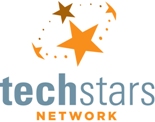How to Get into Techstars: Q&A Part 2 – Mentorship & Equity

This article is the second part of the Q&A with Partner of Techstars Venture , and is based on the Codementor Office Hours hosted by Ari Newman, Partner of Techstars Venture. Our audience asked him questions about what sort of mentorship they can expect from Techstars as well as some questions about equity. You can read Ari’s answers in the post below.
Techstars Mentorship
There are strategic mentors and functional mentors.
Strategic, or lead, mentors are the experienced entrepreneurs and business executives, and they have domain expertise or relevant experience to the area you’re working in. Moreover, they can help you think about strategy, fundraising, going to market, pricing, or high level aspects of the valued profit of the business.
Functional mentors are the experts at growth hacking, architecture, marketing, messaging, pricing models, etc. They’re more detail-oriented and may have deep operating knowledge that can be helpful. A functional mentor will help you apply the best practices in the industry and learn from doing so.
A lot of mentors show up and offer to give their time and be helpful because they understand how expensive it can be some mistake in the market. If you raise your seed rounds but spend six months in the wrong market or the wrong pricing model, you may not get a second chance. So a lot of mentors just want to help other entrepreneurs avoid some of the mistakes they made in their career.
All in all, you’ll get a lot of input and insight from people who have been there and done that, and you’ll learn how things are not always what they seem. That duality is important, and we help you work through that.
What do you typically do when mentoring an entrepreneur?
First, I’d encourage everyone to check out the Techstars’ mentor manifesto, and it is been published online on David Cohen’s blog. It’s not telling you that you’re wrong and you should do things in the author’s way─it’s just data.
So, you might get input from a bunch of different sources, and your job as an entrepreneur is to understand why the person is thinking in a certain way. If you get feedback that resonates with you, and you hear ideas consistently that are different from what you’re doing, it’s your job to parse that and decide what you want to do with it. If you tell me you’re building a mobile social local coupon app, I might say “That’s awesome, but there’s a lot of them in the market, so how would you differentiate your product?” And then you tell me the way you’ll differentiate is to offer a greater discount, I might ask you if you’ve validated whether doing so is going to set yourself apart and is it going to make sense in terms of customer acquisition and unit economic standard point and if your margins are worse than the other products out there.
In other words, I’d give you things to think about and I’d give you challenge points to help you think through your business. When someone says they have no idea how to think about those points, then make we break down and there will be more of an educational process that goes on. But it’s not draconian and not dictatorial.
Are There Differences to Programs between Different Cities?
 All the programs follow the same formula. It’s largely a three-month accelerator, it’s a mentor-led program, there are some three phases to the program. So those are all the same. The only difference in terms of location is there’s sometimes a little bit nuance in the types of mentors or the resources that city has. Boston has more Bio-science, we run a Kaplan accelerator in New York, which is stronger with Edtech. NY is also obviously great with media and fashion. Our Austin and San Antonio programs are great with infrastructure and has lots of mentors are good at both B2B and B2C, and Chicago is very diverse, etc.
All the programs follow the same formula. It’s largely a three-month accelerator, it’s a mentor-led program, there are some three phases to the program. So those are all the same. The only difference in terms of location is there’s sometimes a little bit nuance in the types of mentors or the resources that city has. Boston has more Bio-science, we run a Kaplan accelerator in New York, which is stronger with Edtech. NY is also obviously great with media and fashion. Our Austin and San Antonio programs are great with infrastructure and has lots of mentors are good at both B2B and B2C, and Chicago is very diverse, etc.
There are lots of similarities, but as you get to know the managing directors or look at the other companies that have come through various cities, you can see sometimes there’s a little bit more concentration in certain markets. One of the things we do in our application cycle is we ask you about your first, second, or third choices, and all of the managing directors that are looking at those companies and their cohorts are looking to see if that makes sense and if they can add value to the mentors in this particular market and eco-system, and if they have the right expertise to truly help the applicants.
If Your Market Focus is not the States…
I think the best places to apply for the Techstars programs are London and Berlin. New York is another good one for that as well. We have companies focused on credit facilities for Spain, Portugal and markets there that are really dealing with the nuances of the way banking industries work there.
Obviously there’s different laws and ways doing business in the UK. We also invest in Canadian companies. When you’re in those markets, you get more mentors that operate international market states you’re probably working in. If you are in an international business or you’re focused on places like Latin America, any of our programs can be great, but I think we can work with you to figure out what exactly is the business you’re focused on and figure out the right mentors for you. A lot of our mentors have either run public companies or have worked for companies that are in multiple markets, so there’s a lot of knowledge and operating experience in more than the domestic markets.
What type of transformation have you seen from a company coming in and coming out?
There’s no formula as it varies wildly, but in the last older class there’s a company that got into the program because they were a great team, they could move quickly and make interesting things. However, they ultimately realized through the course of the program that they worked well because they weren’t solving big enough problems for a big enough market.
So, they not only pivoted, but they ended up executing completely different business ideas that have nothing to do with what they’re doing before. I wouldn’t even call it a pivot. They took all the goodness they’ve built in terms of operational prowess, the seed capital they raised, and their high velocity as a team and applied that to an entirely new market. In general I think it depends on how close to the final mark of the business from the get-go.
How have companies that have grown far past their days in Techstars stay a part of Techstars and continue to help?
The best examples are companies like Digital Ocean and Sendgrid, where the founders of those companies are active mentors and investors, and now both companies are global sponsors of Techstars as well. Almost every Techstars company offers the rest of the network perks at significant discounts, such as hosting credits, free services, discounted SaaS products, etc.
What to Expect from Techstars Equity Agreements
This is all well documented on our official website, but Techstars takes about 7% of the equity in the company.
In addition─this is me speaking as an entrepreneur and not as someone representing Techstars─try not to think about this as giving up 7% for 118k dollars to be evaluated as X.
The hundred thousand dollar convertible note is meant to give the company a little bit of breathing room while you are going through a program and haven’t raised money yet.
The value that you’re gaining is from mentorship, the relationships and being a part of the Techstars network. We have 1500 mentors, almost 5 or 600 companies, hundreds of hundreds of investors & co-investors, and we’re a worldwide and growing organization. Great entrepreneurs never start just one business and retire. We’re interested in what you’ll do next and what you do as a person, not just the current business or ideas you are executing today.
The way I justified what I was doing when I was going to Techstars in ‘07 was I looked at what a PR firm would have wanted me to give them in terms of equity to work with me for 2 years because I didn’t have cash, and what I would have to give my strategic advisory board to get the equivalent attention from mentors. If you hire three strategic advisers, you give them points to each for one year of service, you give them PR from two points for giving you the equivalent to 2500 dollars a month, you hire an outside design firm, etc. Pretty soon you’d give up 10% of the company, and all you have gotten out of them is about 50% of what those people are actually capable of. From a mental math standpoint, 7% to be a part of the platform then get all of that value forever is a no-brainer.
What Happens if the Idea Fails
If a company failed and shuts down, we’ll write off the debt.
We don’t take over assets, and the entrepreneurs don’t have to pay the company back–it’s part of doing business. So, it’s no different than if you take 100K convertible notes from an angel investor. Obviously the angel investor is there to have a chunk from a growing and profitable company, perhaps if they are your sole or major investor, and there’s technology assets or intellectual property to be solve, that angel might want to get those assets. However, Techstars won’t be pursuing those.



